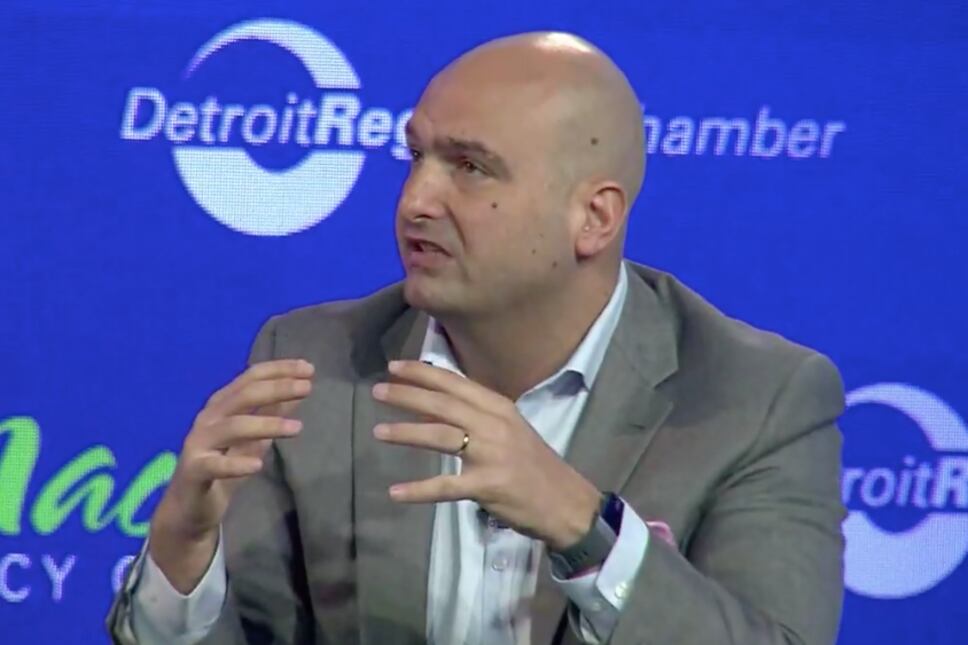Tuesday, the Detroit school board is set to vote on a fall reopening plan that will map out how the district will keep students safe when classes begin, as well as options for parents who aren’t ready to send their children to school.
Developing a plan that pleases everyone hasn’t been easy. For two days now, critics of the district’s in-person summer school classes have protested outside a west side bus terminal, accusing the district of using students as guinea pigs. On Monday, the protests meant students at a handful of schools — including two special education centers — couldn’t get district transportation to school.
School buildings nationwide were shut down in the spring, and learning was shifted either online or to academic packets, in order to stop the spread of the coronavirus.
Superintendent Nikolai Vitti, in an interview with Chalkbeat Monday afternoon, addressed the protests, the district’s response to positive COVID cases, and many other issues.
There have been no easy answers for school leaders as they try to navigate the pandemic while being pulled in multiple directions. It’s been particularly difficult, Vitti said, because “we have no clear federal guidance on COVID as a nation.”
Vitti describes it as the most difficult period of a career that brought him to Detroit in 2017 to try to turn around one of the most troubled districts in the nation.
“It’s painful for me to sit back and know that our kids are suffering. They’re not engaged. They’re not being inspired. They’re not being connected to activities outside their home.”
Here are excerpts from Chalkbeat’s conversation with Vitti:
The concerns raised by protesters
Vitti said he understands the criticisms raised by protesters. But he said the district is abiding by federal and state recommendations and doing what Gov. Gretchen Whitmer’s reopening plan requires and recommends for the fall. Whitmer’s plan allows for face-to-face instruction when the state is in phase four of Michigan’s plan for reopening the economy. Most of the state is currently in that phase, though there has been an uptick in cases recently that could affect the date schools open.
“The conditions we’re facing now are going to be no different in the fall,” Vitti said.
He feels strongly that parents need to have a choice between in-face instruction and online instruction.
“If parents need face to face and there is a safe way to do that, I believe we should do it.”
Why online learning didn’t work for some students
Remote learning didn’t work for all students, and that was only partly because of the lack of technology, Vitti said.
When so many students are already below grade level and struggling in a classroom environment, he said, “we’re just magnifying, exacerbating their academic struggles when they’re learning through the computer.”
Students need individual, small group support at home, but not all parents are comfortable providing that support. That leads to frustration, anger, and conflict, “or abandonment of the academic process altogether.”
How the district will address positive COVID cases during summer school
“If a student has a confirmed case or an employee, then we will clearly identify what groups of students and adults have interacted with each other in close proximity over a long period of time,” Vitti said.
That process will be easier to control because students will remain in the same classroom throughout the day, Vitti said.
Those identified as having been in contact with someone who tested positive will be asked to quarantine and their classes would shift online. The district is in the process of distributing tablets, with keyboards, that students can use for virtual classes. It’s part of a $23 million philanthropic effort to bridge the gap that exists in access to technology for Detroit students.
“We would also inform all the parents directly who could have been exposed,” Vitti said.
Vitti said a full school closure could be required, but “It would depend on the case and how much movement that student had in the building. Those are decisions that we would make in concert with the health department.”
Potential updates to the district’s code of conduct
The current code provides some flexibility in dealing with bad behavior, and gives students in some circumstances opportunities to correct their behavior. That kind of flexibility won’t be possible for students who violate pandemic-related safety measures, such as wearing a mask, remaining in their seats, not touching or hitting others. That’s why an update to the code of conduct, which establishes behavior guidelines and consequences, is necessary.
“There have to be clear consequences,” Vitti said. Otherwise, “we’re not being true to the safety guidelines.”







